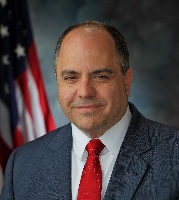Lakeville Criminal Lawyer, New York
Sponsored Law Firm
-
 x
x

Click For More Info:
-
Law Office of Mark S. Guralnick
55 Madison Avenue 4th Floor Morristown, NJ 07960» view mapCriminal Defense Law Dedicated. Fearless. Successful.
Mark S. Guralnick and his legal team have helped clients throughout the USA and across the world by applying unparalleled dedication and hard work to each case.
800-399-8371
Susan Kathleen Duke
✓ VERIFIEDCriminal, Divorce & Family Law
LLM, Masters of Law, International Taxation
I consider communication to be a key aspect of the lawyer-client relationship, which is why I return phone calls and emails promptly. My clients have ... (more)
Raymond Paul Sciarrino
✓ VERIFIEDCriminal, Real Estate, Personal Injury, Traffic, Estate
Licensed: 22 Years
Sciarrino & Sciarrino, P.C. is a criminal law firm serving Rochester and the surrounding areas of Livingston County and Wyoming County. For more than ... (more)
Marcea Clark Tetamore
Real Estate, Divorce & Family Law, Criminal, Bankruptcy & Debt
Status: In Good Standing Licensed: 33 Years
Peter K. Skivington
Commercial Real Estate, Lawsuit & Dispute, Criminal, Accident & Injury
Status: In Good Standing Licensed: 45 Years
 Mark Guralnick Morristown, NJ
Mark Guralnick Morristown, NJ AboutLaw Office of Mark S. Guralnick
AboutLaw Office of Mark S. Guralnick Practice AreasExpertise
Practice AreasExpertise


